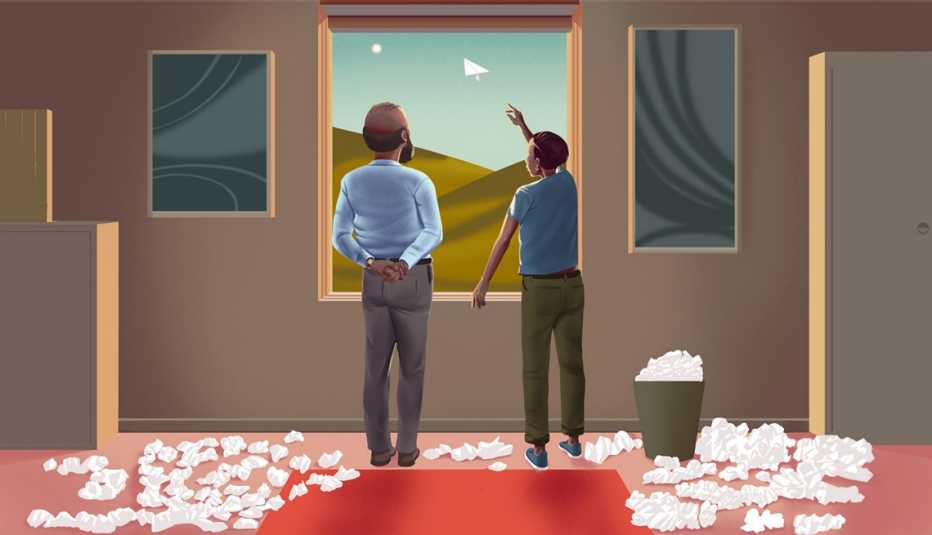AARP Hearing Center


Comedian (and former trial attorney) Karen Morgan has some consoling words for those worried about the future. “If Gen Z takes over the world, it will be easy to get it back,” she says in her stand-up routine. “We’ll just write our battle plans on paper, in cursive.”
Times have changed since we more mature Americans started driving, working and managing our own lives. Computers, emails and smartphones have made much of how we operated obsolete. But not everything can be substituted by technology.
One of my fondest memories of growing up was being in the kitchen while my mother or grandmother prepared meals. Indeed, some of the earliest education I received from my elders was learning to cook, throw a ball and practice good manners. While America’s youngest adults seemingly don’t know how to write a check or address an envelope or get anywhere using a paper map, they may want to learn, since much of this knowledge is still useful.
And that means it is up to the older generation to “show them the ropes,” both figuratively and literally. The expression dates back to ancient sailing vessels where experienced deck hands showed new sailors which ropes lead to and support the sails and which support other parts of a ship. Today, we show someone the ropes by building a one-on-one relationship and sharing our expertise to help him or her gain knowledge.


You can subscribe here to AARP Experience Counts, a free e-newsletter published twice a month. If you have feedback or a story idea then please contact us here.
So how do you get started mentoring? It’s pretty simple.
1. Have a skill or knowledge
According to an AARP survey, “7 in 10 workers say they like working with generations other than their own, and the majority agree that both younger and older workers bring a set of positive benefits that enhance the workplace environment.”
But you don’t need to be a business guru to mentor others.
A few months back, a vicious windstorm split one of my trees in half, and it just missed falling on a neighbor’s car. I went out to cut it up to take it to the county dump. The young teens from across the street asked if they could help. I was able to show them how to properly and safely use the hand and power tools and to work as a team to get through this task. I even paid them for their time (or perhaps for their curiosity). I’ve taught similar life skills to my own son on many different tasks that I know he will need to do himself one day.
Other life skills worth showing a younger person include:
- How to change a tire, check the oil or change a spark plug.
- How to patch a hole in a wall, quiet a squeaky door or fix a leaking faucet.
- How to complete tax forms, make a monthly budget or set financial goals.
2. Desire to help society one person at a time
The best part of being a mentor, in my opinion, is not merely passing on information but also passing on values and attitudes. In our disposable society what could be more important than teaching others to be curious, respectful, self-sufficient, patient and grateful?































































More From AARP
Homeschooling Headaches: 5 Challenges for At-Home Teachers
The stories you don't hear about when it comes to homeschool education
9 Classic Books to Share With Your Grandkids
A classic can transport us to an unfamiliar world while assuring us that we are not alone in the way we experience the world
7 Skills We No Longer Teach but Should
When did it become so hard to make change or jump-start a battery?